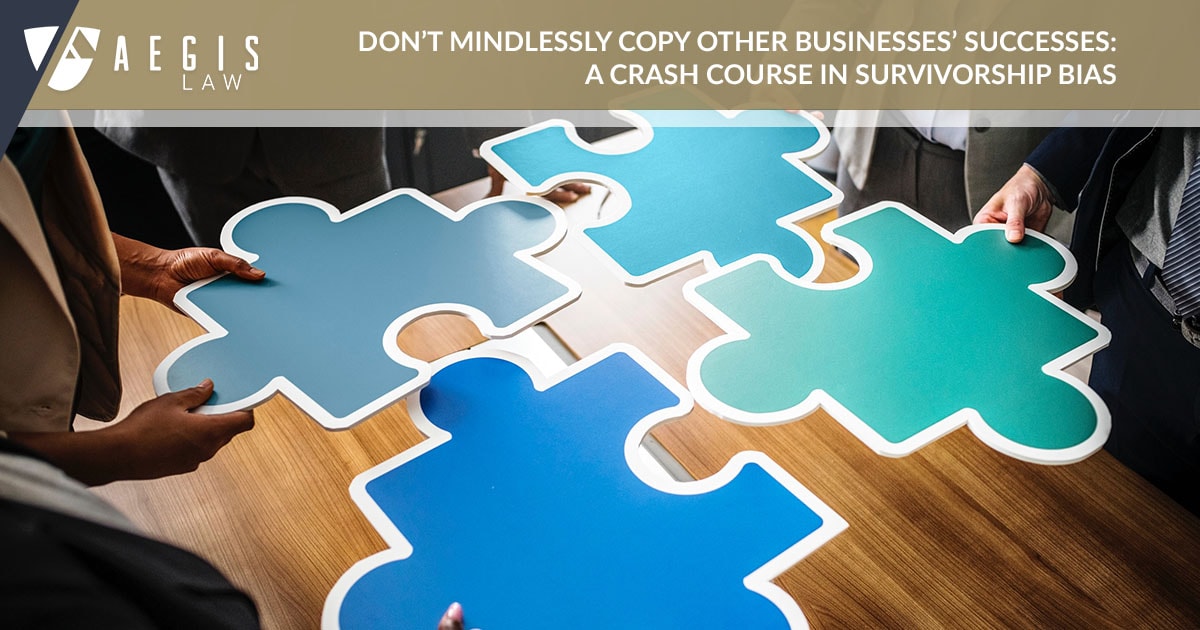Apple. Google. Microsoft. Facebook. Virgin. To succeed in business, we need to study the people and businesses that were successful before us, right? This is the cult of the successful entrepreneur and yes, we can learn from them. But when we focus on the companies and personalities who succeeded, we’re missing what brought down all those companies that failed. How can we avoid those mistakes if we don’t even know what they are?
This phenomenon is called survivorship bias. A famous example of survivorship bias happened during WWII. The military called on scientists and mathematicians to help the U.S. figure out how to keep their bombers in the air – they were being shot down in high numbers. The military looked at the bombers that came home and saw a high number of bullet holes in the wings, tail gunner and the body of the planes and they planned to add armor in these areas. A brilliant statistician named Abraham Wald pointed out this classic example of survivorship bias, and probably changed the course of history. Wald revealed that the military was focusing on the wrong thing – the planes that had survived. Those planes had holes in the wings, tail gunners and bodies of the bombers, but had made it home. Bullets in those areas probably weren’t going to take the plane down. It was more important to figure out what had taken down the planes that hadn’t made it home.
The same thing holds true in business. Looking to problems that were overcome by wildly successful businesses isn’t enough. We need to look at why some businesses fail. Similarly, it can be misleading to look at hugely successful entrepreneurs. The traits that led personalities like Steve Jobs and Elon Musk to success may take down other entrepreneurs. Focusing on these rogue thinkers, risk takers and polarizing personalities eliminates consideration of the entrepreneurs who were unlucky, those who offended co-workers and funders with their polarizing ways and people who ignored advice and failed.
The best way to learn isn’t by blindly following the profitable people who came before you. Success may be more about learning from the winners and the losers, and then forging your own path ahead.
Who is Scott Levine?
Scott’s practice is dedicated to assisting entrepreneurs, investors, emerging and established businesses with the unique and often challenging issues they meet throughout the formation and growth process: from entity formation, to the management of founder relationships and economics, to the protection of intellectual property, to the financing of growth and navigating securities law compliance. He assists clients as they continue to grow and develop, whether this involves merger and acquisition activities, international licensing and distribution arrangements or counseling of directors and officers.
Scott is chair of the firm’s Securities practice. His practice is focused on advising a wide range of clients on SEC matters, securities transactions and corporate governance. He represents issuers, investment banks / financial intermediaries and investors in financing transactions, including public offerings and private placements of equity and debt securities.




